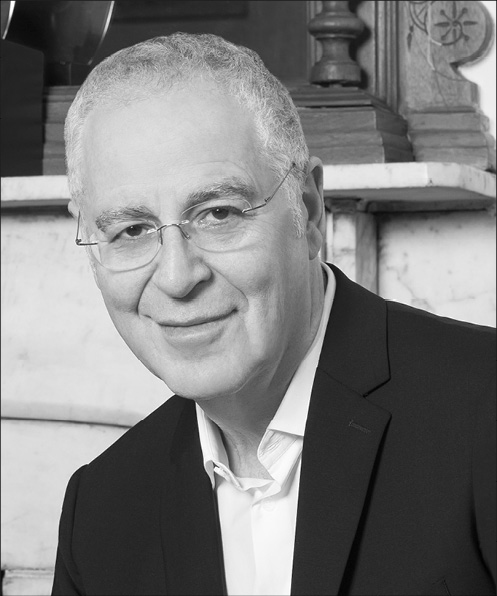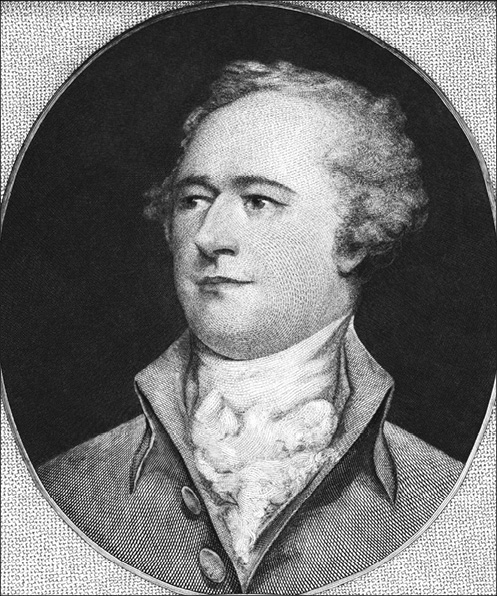4 RON CHERNOW on Alexander Hamilton
“Alexander Hamilton was someone who radiated genius.”
BOOK DISCUSSED:
Alexander Hamilton (The Penguin Press, 2004)
Some biographers write books that are well regarded by serious scholars but that may be too detailed and too long to attract enormous popular interest. Other biographers write books that are quite popular with the book-buying public but that serious scholars feel lack original or serious scholarship.
Then there is Ron Chernow. He is the rarest of biographers: able to write books that are best sellers but that are also praised by scholars. This has been true of all of his biographies, which include books on the House of Morgan, John D. Rockefeller, the famous Warburg banking family, George Washington (a book that won a Pulitzer Prize), and Ulysses S. Grant.
And there is that other biography on a heretofore important but not all that well known Founding Father, Alexander Hamilton.
When it was first published, it not only sold well, but it also was an important contribution to the scholarship on Hamilton. Of greater significance, it was read on a Mexican vacation by Lin-Manuel Miranda, who then used it as the basis for the biggest theatrical phenomenon of recent decades: the musical Hamilton.
When I interviewed Chernow, Hamilton had just debuted on Broadway, but its now well-known spectacular success as a rare cultural force had not yet occurred, and everyone in the country was not yet familiar with the incredible story of Alexander Hamilton. Chernow does an excellent job of conveying the key elements of that story in this interview.
A footnote: A few years ago, I received the Alexander Hamilton Award from the Museum of American Finance. The director of the museum asked if I would mind if the creator of a then off-Broadway show could sing a few hip-hop songs about Hamilton before I was given the award. I said fine, and a then unknown (to me) Lin-Manuel sang two songs from the musical, which I was told he was still fine-tuning.
I listened, and told the museum director that I knew one thing about Broadway—a hip-hop show based on our first treasury secretary was doomed to fail, and I was glad I had not invested in it. I guess this is why I have not been an investor in Broadway shows. I have absolutely no talent in assessing potential winners.
Chernow’s recounting of Hamilton’s life makes one realize what Lin-Manuel Miranda found so interesting, if not unbelievable: an illegitimate and orphaned young man from the Caribbean came to New York and, not too long thereafter, became General Washington’s top aide during the Revolutionary War, the principal author of The Federalist Papers, the first treasury secretary, and the architect of the country’s financial system.
How did he pull this off? Chernow makes it clear that Hamilton was not only intellectually gifted but also a truly driven man (a workaholic in today’s terminology).
But how could such a smart man, who was driven to accomplish so much more than he had already done, allow himself to die at the age of forty-nine in a duel with Aaron Burr, vice president of the United States? There is no good answer. But Chernow suggests that Hamilton did not intend to shoot Burr—that he was prepared to “waste his shot,” perhaps in the expectation (or hope) that Burr, a well-educated “gentleman,” would do the same.
One wonders just how history might have been changed, or how many other brilliant feats Hamilton might have accomplished, if he had lived to a ripe old age, as so many of the other Founding Fathers did. We will never know.
We will also never know what George Washington would think of Hamilton becoming so famous because of the success of Hamilton. Is he in heaven thinking that he was the Revolutionary War general, the president of the Constitutional Convention, the unanimously elected two-term president of the United States, while Hamilton was always subordinate to him? Why did Lin-Manuel not write a show about him? After all, Chernow’s book on Washington actually won the Pulitzer Prize.
One suspects, though, that any concern Washington might feel about Hamilton becoming so popular is a fraction of the concern that Thomas Jefferson must be experiencing.

